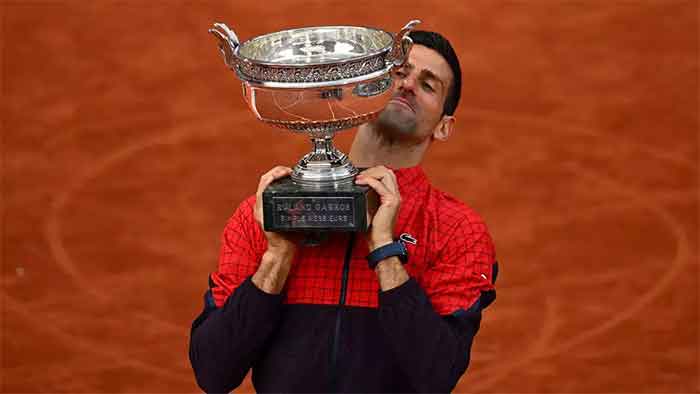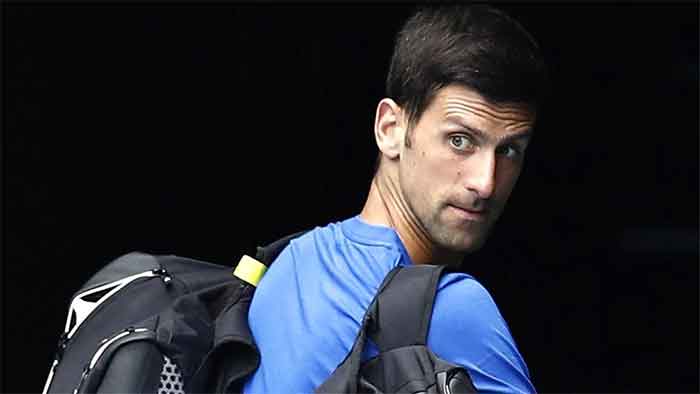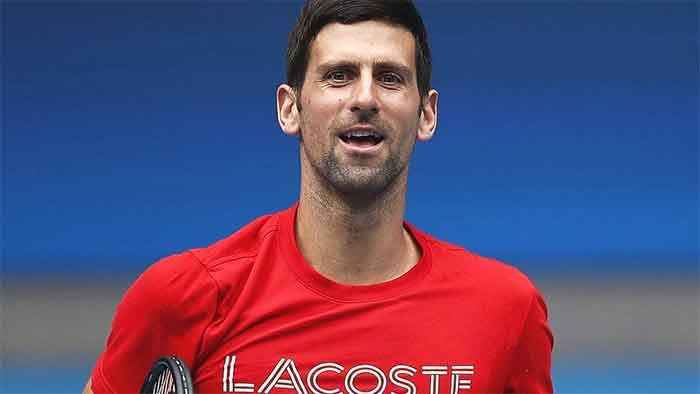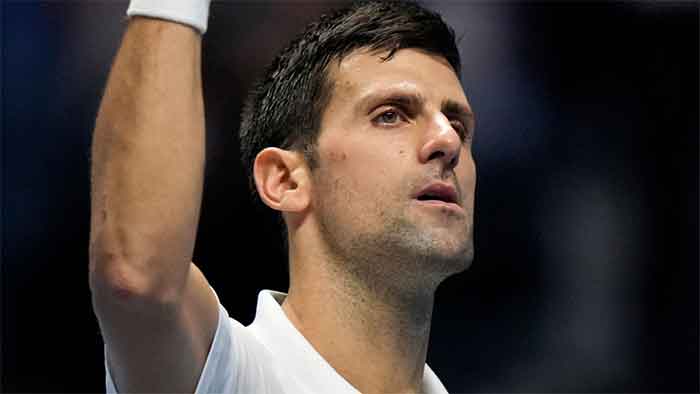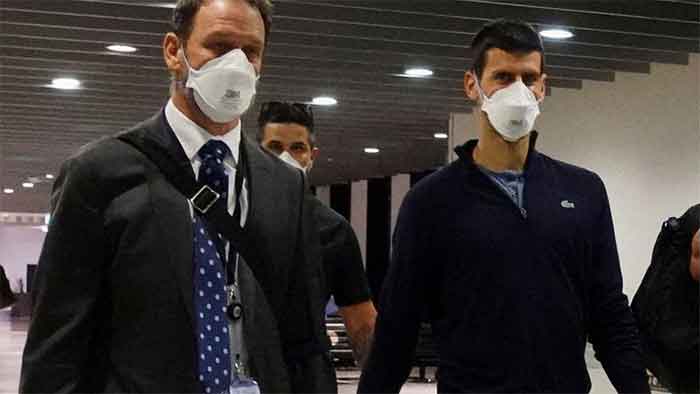
Australia’s treatment of Novak Djokovic, the tennis world number one, has been revelatory. Unintentionally, this has exposed the seedier, arbitrary and inconsistent nature of Australia’s border policies. The approval by the Australian Federal Court of the Immigration Minister Alex Hawke’s decision to re-cancel the prominent Serb’s visa left the country a heaving precedent that will be invoked, in future, with relish.
Djokovic had originally entered the country under the assumption that he had been granted a legitimate vaccine exemption. As the former Australian Tennis Open director Paul McNamee explained to the ABC, “every player and support member fills in a form, visa 408, and everyone does that, you are guided through it by Tennis Australia, every step of the way, and then you get approval, that is the process.”
On December 30, 2021, Djokovic received a letter from the Chief Medical Officer of Tennis Australia explaining that he had been granted a “Medical exemption from COVID vaccination” on the grounds that he had recently recovered from COVID-19. The exemption certificate had been furnished by an Independent Medical Review panel commissioned by Tennis Australia and approved by the Victorian state government’s independent Medical Exemptions Review Panel.
To cap things off, the Department of Home Affairs informed Djokovic that his Australia Travel Declaration has also been given the nod. His “responses [i]ndicated that [he met] the requirements for a quarantine-free travel into Australia where permitted by the jurisdiction of your travel.”
The story turned out rather differently. Such documentation proved insufficient for Djokovic on entering Australia on January 5. A delegated officer of the Australian Border Force hastily cancelled his visa, giving Djokovic insufficient notice to prepare his explanation on the morning of January 6. It was this procedural blunder that led to the Serb’s victory in the Federal Circuit Court, where Judge Anthony Kelly stated the following with some pungency: “Here, a professor and a physician have produced and provided to (Djokovic) a medical exemption. Further to that, that medical exemption and the basis on which it was given was separately given by a further independent expert specialist panel established by the Victorian state government […] The point I am agitated about is, what more could this man have done?”
The Commonwealth, for its part, rejected claims that any deferral of vaccination should not have been read as an excuse not to get vaccinated. The Tennis Australia exemption letter did not constitute sufficient information for the purpose of entering the country unvaccinated.
Exercising ministerial discretion
The Commonwealth’s defeat in the Federal Circuit Court did not end matters. Hawke was left to exercise his vast executive discretion in a none-too Solomonic way. The federal Labor opposition leader, Anthony Albanese, wondered whether the government was conducting a focus group in order to receive “the answer before it responds to the issue”.
As Hawke dithered, Djokovic was ritually torched in media and social media circles for incorrectly filling out the travel declaration. Much of the kindling had been provided by the tennis player himself. He had, it transpired, been in Spain; his agent had made a “human error” in stating that he had not travelled abroad in the 14 days prior to arriving in Australia on January 5.
He had also breached Serbian pandemic restrictions by avoiding isolating for 14 days after receiving a positive PCR result on December 16. Instead, on December 17, he breezily attended a tennis event in Belgrade where he presided over the giving of awards to children and, on the following day, conducted an interview with French journalist Franck Ramella of L’Equipe. “The instructions were clear,” Ramella subsequently wrote on realising that the tennis star had done the interview after testing positive for COVID-19. There were to be “no questions about vaccination.”
This was all a bit much even for the otherwise supportive Serbian Prime Minister Ana Brnabić, who told the BBC that, “If you’re positive you have to be in isolation.” She did, however, leave it to Djokovic to explain the matter. “I do not know when he actually got the results, when he saw the results, so there is some grey area… the only answer to this can be provided by Novak.”
This growing resume of seeming shiftiness did not augur well for Djokovic’s already anaemically thin chances. The Minister had been furnished with fuel and duly ignited it. The cancellation came, timed with brutal effect, on January 14. It had been made “on health and good order grounds, on the basis that it was in the public interest to do so.” The Australian Open, for which Djokovic had started training for on court, was to commence on January 17.
The threat inflation factor
Within hours, the legal team began proceedings in the Federal Court of Australia in a speedy effort to overturn Hawke’s cancellation. The government submission was telling, consciously magnifying the Djokovic threat. He had “indicated publicly that he was opposed to becoming vaccinated against COVID-19”. He had “acted inconsistently with certain COVID-19 restrictions in the past.”
The second ground drew more attention to the first point, with the Minister insisting that Djokovic was stirring an anti-vaccination insurrection: “[T]here are some media reports that some groups opposed to vaccination have supported Mr Djokovic’s presence in Australia, by reference to his unvaccinated status.” The ground was barely credible, given that his reservations about vaccination were already known before entering Australia. As is often the case Down Under, the Australian public is treated as a potentially wayward child who might be tempted by anti-institutional contrarianism.
The third ground followed on from the first: that encouraging such resistance against COVID-19 vaccinations and restrictions “would present a problem for the health of individuals and the operation of Australia’s hospital system”. What a revolutionary monster the Serbian player was being made out to be.
Djokovic’s submission
The defence outlined, plausibly, that Hawke had engaged in a crude bit of threat inflation. It was one thing to deport an individual who, posing an individual health risk, had entered Australia lacking a medical exemption and inconsistently with the guidelines of ATAGI (Australian Technical Advisory Group on Immunisation). It was quite another to do so to a person “who poses negligible individual health risk, enter with an exemption, and consistently with ATAGI guidelines, etc.”
Such reasoning, it followed, was “perverse, illogical, or irrational” and distinctly “out of keeping with the proper exercise of a power the purpose of which is to reduce risk to health”. This also ignored that the cancellation “creates a much larger health risk (or good order risk).”
The Minister had also not addressed “in express terms” what those dangerous consequences to health and good order Djokovic posed might be. This was a “counterfactual” that the Minister did not consider. The “anti-vaccination sentiment” approach was also at odds with the original delegate of the Minister for Home Affairs.
In attempting to hole Hawke’s argument, emphasis was placed on the Minister’s one-sided approach in considering the consequences of Djokovic’s presence, rather than absence. It might very well be that the visa cancellation, the Serb’s detention and deportation, rather than the player’s presence in Australia, could cause unrest. “Mr Djokovic’s point is that that material [suggesting that anti-vaccination groups were upset at the cancellation and his detention] is not referred to or considered in the Minister’s reasons.”
Valiantly, the defence also argued that Hawke’s discretion to cancel the visa could not be undertaken “on an evidence-free figment of his imagination.” The point on whether there was evidence supporting the contention that Djokovic’s presence “may foster sentiment against vaccination” was not addressed. The media reports cited by the Minister to supposedly show anti-vaccination support by groups in Australia failed to even mention Djokovic.
The mess became even more elaborate with the defence salvo that the Minister did not himself know what Djokovic’s actual views on vaccination were. This was despite claiming that his anti-vaccination stance was a “well-known” one. “This,” the submission bluntly states, “is illogical.” Djokovic’s statement for the record should, the argument went, lead one to an inference that his public views had been “taken out of context” and that he did “not accept the depiction by the ‘international media’ of his views on vaccination”.
All it would have taken was a request by Hawke that Djokovic furnish him with material on the issue. As the player had previously pointed out in other media reports, he was “no expert” on vaccinations and was keeping an “open mind” on the issue; he simply wanted to have “an option to choose” what was “best” for his body.
Dark consequences, sinister precedents
On Sunday, January 16, the decision of the full court of the Federal Court was handed down. (Full reasons are yet to be published.) In finding for the Commonwealth, Chief Justice James Allsop affirmed the traditional reservation shown by Australian judges to challenging exercises of executive power. The grounds made by Djokovic “focus on whether the decision was, for different reasons, irrational or legally unreasonable. It is not part or function of the court to decide upon the merit or wisdom of the decision.”
The Djokovic precedent presents the authorities with a large tarring brush, one to be used against other notable figures of certain opinions seen to pose a risk to Australia’s public interest. Hypotheticals will suffice, given that the Minister need only be satisfied that the person might be a risk to health, safety and good order.
Such latitude also grants authorities a heavy hand to target future dissent and protest. The Australian government will be able “to justify,” barrister and president of Liberty Victoria Mike Stanton warns, “the suppression of legitimate political expression because others might engage in unrest.”
With a stunning lack of imagination, the Djokovic precedent promises that the executive will not be accountable for the disorder and disruption arising from deporting individuals who might command a following. Oppression promises to be twinned with unpardonable stupidity.
Dr. Binoy Kampmark was a Commonwealth Scholar at Selwyn College, Cambridge. He lectures at RMIT University, Melbourne. Email: [email protected]

